Early last month, the Trump administration launched a national campaign urging undocumented immigrants to voluntarily leave the United States or face arrest and deportation.
The $200 million effort includes television and radio ads in both English and Spanish. In the campaign’s centerpiece ad, Homeland Security Secretary Kristi Noem delivers a message: “Leave now. If you don’t, we will find you and we will deport you. You will never return.”
- The Trump administration launched a $200M campaign urging undocumented immigrants to self-deport or face arrest and deportation.
- Fear of family separation and harsh policies are driving many immigrants to voluntarily leave the U.S., even with U.S.-born children.
- The impact of this can be seen by employers as many industries face labor shortages.
A $200M national campaign is meant to encourage undocumented immigrants to self-deport
Image credits: Spencer Platt/Getty Images
U.S. President Donald Trump, who made mass deportations a central promise of his 2024 campaign, has wasted no time translating that pledge into action since returning to the White House in January.
His administration has drastically scaled back refugee resettlement, ended protections for immigrants from crisis-hit countries like Venezuela and Haiti, intensified raids targeting undocumented workers, and even sent suspected gang members to a maximum-security prison in El Salvador without due process.
As of July 5, 57,186 migrants are in ICE detention centers, according to NBC News. Trump’s deportation rates are almost half his arrest rate, adding up to 14,700 deportations a month on average.
Image credits: Christopher Mark Juhn/Getty Images
Compared to 2013, during Obama’s immigration crackdown, the number was 36,000 deportations per month. Despite Obama deporting more people, immigrants fear Trump more because his policies are harsher, less predictable, and target everyone, including families, workers, and asylum seekers.
Additionally, arrests have surged considerably. This includes the construction of new ICE facilities and the creation of a fearful atmosphere for immigrants.
It is in this atmosphere that many families are choosing to self-deport from the country.
Julio and Sasha Mendoza are one such couple who felt that staying in the U.S. is too great a risk.
“The fear is no longer being deported; the fear is being attacked while we’re still here or our kids being pulled out of school or him not coming home from work,” Sasha, a U.S. citizen married to a Mexican immigrant, told CNN.
“And then if he does get picked up, it’s being taken to a detention center and we never knowing about it,” she added.
Julio, 32, crossed the border from Mexico when he was 11 years old. He has since studied in the U.S. and worked in construction.
The couple moved to Mexico with their three children, all of whom are American citizens.
Sasha and her three children, all American citizens, self-deported to Mexico out of fear for her husband’s safety
Goodbye to the country where I was born, the country that turned on me and my family and forced us to live in fear of separation and discrimination, the place with so many people telling us to “get out of their country”
….We finally did 🖤 And we have never belonged more.
Posted by Sasha Mendoza on Tuesday, July 1, 2025
Daniela, 33, is in a similar situation. She has lived in the U.S. since the age of 2, but remains undocumented.
She, too, is planning to relocate to Mexico with her American husband and their four U.S.-born daughters. Their kids, just like Julio and Sasha’s, don’t even speak Spanish.
“I feel like I’m going to be a foreigner in the country of my birth,” she told Jacobin.
A 2025 policy paper on the impact of deportation on children highlights that uncertainty and fear for their family’s safety can cause psychological violence and stress that can affect the normative development of these children.
For Kataleya Nativi Baca, the reason was safety. A trans woman, she traveled from Honduras to the U.S. in 2021, seeking asylum.
She was granted a stay while her case was being considered. But seeing how asylum seekers have not been spared in Trump’s immigration crackdown, she is now choosing to return to a country where she has faced physical violence.
Image credits: Danielle Villasana/Getty Images
In another case, Yarixza Estrada is returning to Guatemala to reunite with her husband, who was deported.
Estrada, 21, left Guatemala four years ago, seeking safety and opportunity for herself and her daughter. She is now going back after creating a life in New York, where she had applied for asylum.
But a month ago, her husband was detained by immigration agents on his way to a construction job. The couple has three children, two of whom are U.S. citizens.
“It’s just very difficult that they’re treating hardworking people this way. We didn’t come here to do any harm,” Estrada told Spectrum News.
A 2019 article in Harvard Law Review by K-Sue Park argued that self-deportation is a strategy to make life so unbearable for groups who are “unwanted as members of the American polity” that they opt to leave.
Asylum seekers have also been targeted in Trump’s immigration crackdown
Image credits: Jessica Rinaldi/Getty Images
NBC News reporter Jacob Soboroff noted that while the administration promised to remove the “worst of the worst,” it is detaining undocumented workers with no serious criminal records.
This sentiment is exactly what makes families like the Mendonzas or Daniela’s decide to move back to their home countries.
The Trump administration has also retooled a mobile app originally created under former President Joe Biden to help asylum seekers schedule appointments at the border.
Now, the app allows undocumented immigrants to signal their intention to self-deport and receive logistical guidance on the process.
Immigration attorneys, however, caution that this shift misleads vulnerable people into thinking that voluntarily leaving the country could open a door to legal reentry later.
An estimated 13 million undocumented immigrants live in the U.S., many of them contributing to industries like construction, health care, and hospitality. This has led to the crackdown being felt all around the country.
When fires blazed across Los Angeles earlier this year, it was immigrants like Alejandro who were cleaning up scorched neighborhoods in yellow safety vests and masks.
“The country would fall into crisis” without workers like him, Alejandro told the Associated Press. “It wasn’t just one (home). There were thousands,” he said.
Image credits: I RYU/Getty Images
As per a South Californian real estate company, ICE agents scaring off immigrants working on one of their construction sites led to half of the crew not showing up to work, which has slowed down reconstruction after the L.A. fires.
Employers around the country are worried about labor shortages. “There’s an overwhelming sense of fear that something is going to happen, even among workers who are here legally,” Charlie Wilson, president of CT Wilson Construction Company, told The News & Observer.
He said the industry has grappled with a work shortage for a while, and there are not enough American citizens to take over critical roles.
As the Trump administration intensifies its crackdown, the ripple effects are reaching classrooms, job sites, hospitals, and homes. Teachers watch desks emptying as students disappear overnight.
In the words of Los Angeles teacher Manuel Guevara, who has seen students deported and heard of families self-deporting, “This is not normal. Some of our students are capable of reaching the clouds up there and doing some great things. And I really believe that she (a deported student) was on her way.”
Image credits: The White House/Flickr


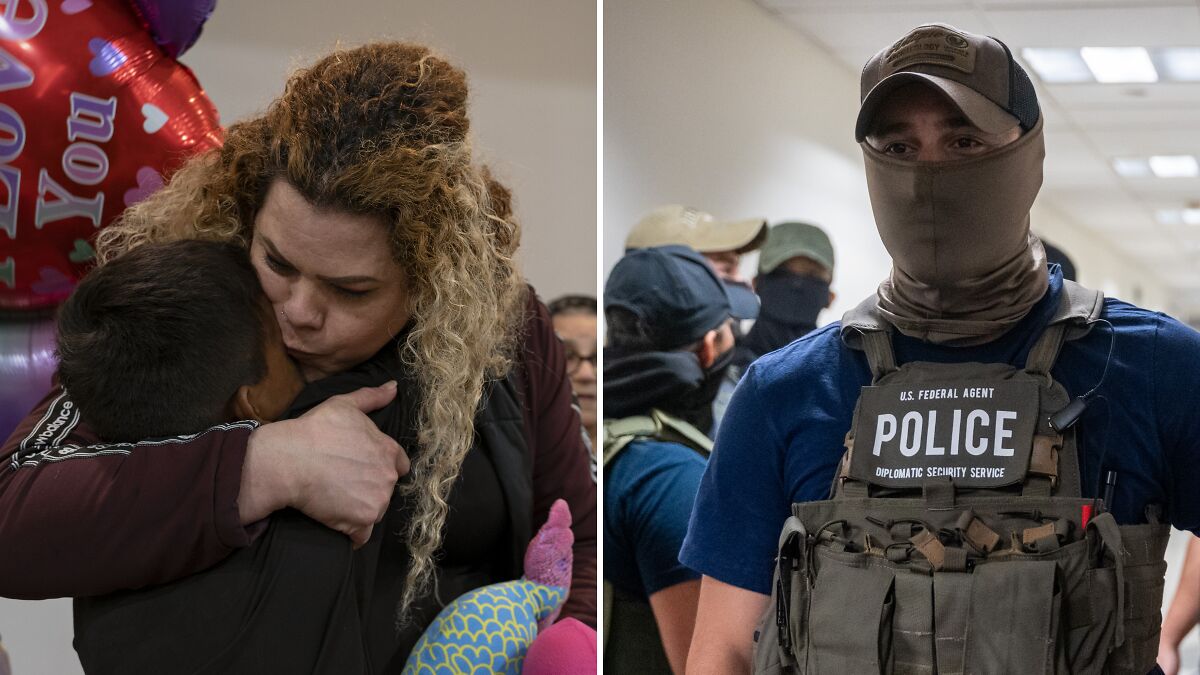
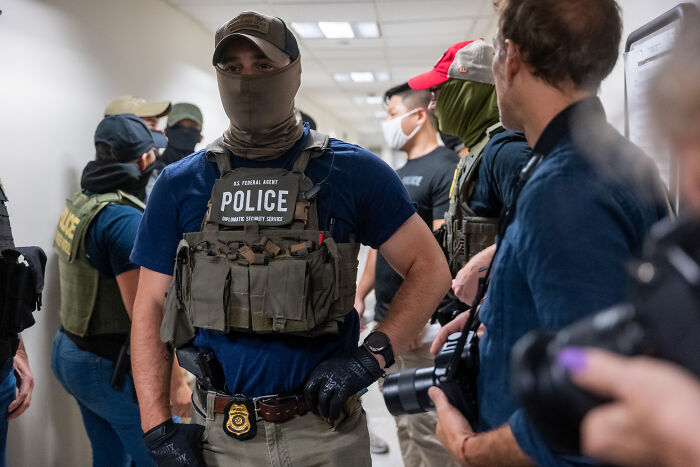
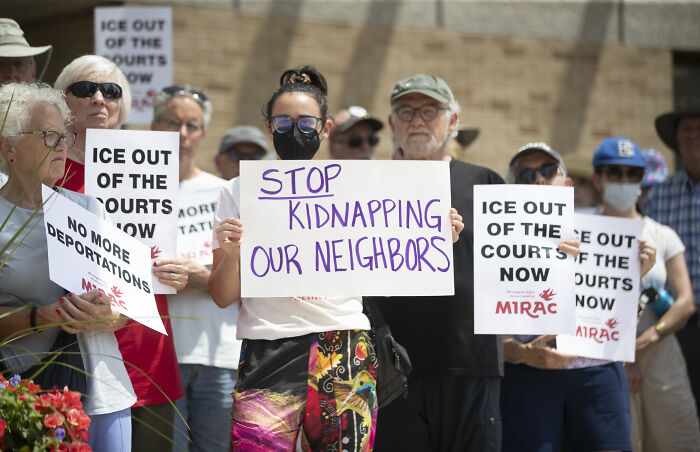
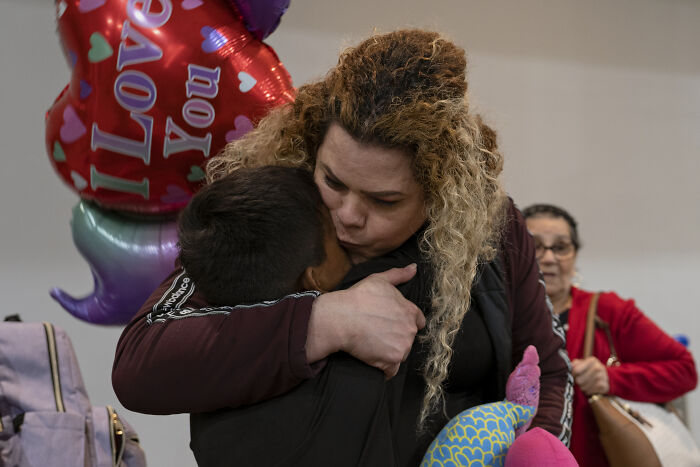
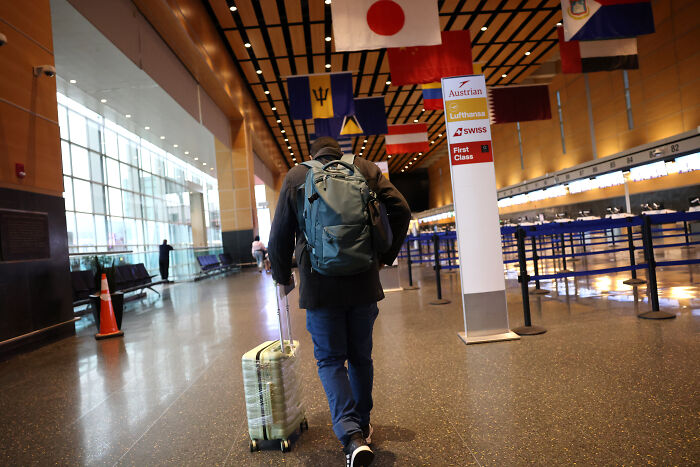





16
0